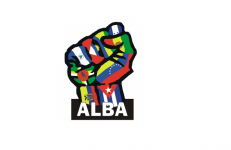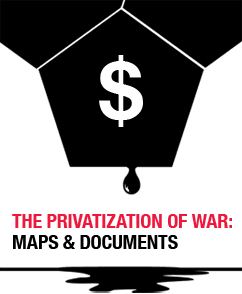An outline
ALBA – an alternative regional alliance?

Various regional integration initiatives have emerged as a counterpoint to the advance of globalisation. The Bolivarian Alliance for the Peoples of Our America (ALBA) is of interest from the perspective of the European left, because cooperation and integration take a very different shape in ALBA from other regional alliances. The three basic principles of ALBA are complementarity, solidarity and cooperation. That in itself is a marked difference from the European Union (EU) with its four fundamental freedoms (the free movement of people, goods, services and capital). Below we will outline ALBA’s main features by looking at the three political, economic and social dimensions of the alliance.
The political dimension:
- ALBA was established in 2004/2005 as the result of an initiative by the then presidents of Cuba and Venezuela, Fidel Castro and Hugo Chávez. Their aim was to formalise the existing cooperation between their two countries and extend it to the rest of the region. Other countries joined from 2006 onwards. Today ALBA has 11 member states.
- ALBA’s chief aim is to ensure the political sovereignty of its member states. That is of particular importance in the USA’s backyard. ALBA is therefore focused on decolonisation and endogenous development. Together with the Union of South American Nations (UNASUR) and the Community of Latin American and Caribbean States (CELAC), ALBA is a relatively young post-hegemonic or post-liberal form of integration that stands out for its progressive focus on its own region.
- Within ALBA, bilateral treaties and multilateral treaties are in place among some or all of the member states. The majority of the treaties, even those that are ultimately concluded among all member states, are bilateral treaties. That is designed to prevent member states being forced into multilateral treaties that are to their disadvantage. ALBA is therefore essentially an alliance of principles, within which cooperation is specified on a case-by-case basis.
- ALBA is intergovernmental in structure. There are administrative supranational bodies only. If required, the decision-making councils are composed of national politicians. As a result, the various national governments have considerable influence on the integration project. That is currently of benefit. However, in the case of sudden political upheaval, such as the 2009 Honduran coup d'état, it can result in states terminating the cooperation with immediate effect. That would be particularly dramatic in Venezuela’s case, since the country acts as paymaster of the integration.
- ALBA is structured as follows: The highest-level body is the Presidential Council, below which are the Political Council (composed of the foreign ministers), the Social Council (composed of the social ministers), the Economic Council (composed of industry, economy, finance, trade, planning and/or development ministers depending on the topic in question), and the Social Movements Council. Decisions are made by consensus in all the councils. The ministerial councils and the Social Movements Council only have a consultative role.
- ALBA places importance on the co-determination of the populations of the ALBA member states. The Social Movements Council is on an equal footing with the ministerial councils, i.e. the Political Council, the Economic Council and the Social Council. Through the Social Movements Council, social movements can submit proposals for programmes and initiatives that they would like to implement or see implemented in the scope of ALBA. However, the social movements cannot themselves sign treaties and can only prevent them from being concluded by protesting outside of the political structures (although they can advise within the political structures against conclusion of treaties).
- ALBA’s open structures enable cooperation between a range of players at various different levels. ALBA treaties are also in place with the Brazilian federal states of Paraná, Para and Maranhão, and with various city councils in El Salvador.
- There is a parallel ALBA of social movements, which includes movements from non-ALBA countries such as Argentina, Brazil, Honduras and Columbia. That has resulted not only in the regular exchange of views and ideas, but also, for example, in ALBA-TV, a network that broadcasts reports and news about social movements.
- In tandem with the new official institutional structure, a new set of alternative institutions is emerging, with networking taking place in the scope of and beyond ALBA. That structure results in a "power geometry", as Doreen Massey puts it, that lends a stronger voice and greater importance to those groups that hold less sway within hegemonic national and international power structures.
The economic dimension:
- Structural economic imbalances are treated differently from in the EU. They are seen as being rooted in history and, in line with dependency theory, are not considered to be the fault of the states themselves, but rather the result of economic dependency on third countries. That is why reduction of the debts is seen as a joint task. The basic principles of trade relations are influenced both by the concepts of collective self-reliance of the non-aligned movement of the 1970s, and by social movements, such as the Hemispheric Social Alliance (HSA), the alliance of various social movements from both North America and South America. Cuba’s experiences in the Council for Mutual Economic Assistance (Comecon) are also likely to have played a role.
- The aim is not for each country to specialise in certain goods as “rationally” as possible and for goods to then be exchanged throughout the ALBA region. Instead, the aim is for complementary trade, i.e. the states should provide mutual assistance in the case of goods that cannot be produced domestically, without being caught in a potentially fatal stranglehold with one another. The ALBA block would like to reduce its dependency on imports from third countries to the greatest extent possible.
- Two familiar methods are used to protect the weaker economies: The virtual currency SUCRE (in English: Unified System for Regional Compensation; in Spanish: Sistema Unitario de Compensación Regional) helps the poorer countries, in particular, to reduce their need for foreign currency when conducting foreign trade. SUCRE is similar in design to the earlier ECU (European Currency Unit), i.e. it is not progressive per se. In the scope of a South-South cooperation – in which the countries are otherwise under constant pressure to acquire foreign currency on the world market – a virtual currency has positive effects, however. SUCRE is in fact merely an already implemented element of broader visions of a new regional financial architecture extending beyond ALBA.
- Barter is another method that reduces the need for foreign currency. It enables the direct exchange of goods, without the use of money. Weaker economies can significantly increase their import capacity, since they typically possess agricultural goods or raw materials, whereas their foreign currency reserves are low. For instance, Cuba provides Cuban doctors in exchange for some of the oil supplied by Venezuela. Those doctors are sent to remote places or socially troubled urban districts, where local doctors are reluctant to work.
Petrocaribe is a Caribbean energy alliance that was set up by Venezuela. It exists in parallel with ALBA, but has more members. Within Petrocaribe, member states can provide export goods in exchange for up to half of the oil products supplied by Venezuela. A number of islands in the Caribbean have paid Venezuela in the form of food exports. Dominica has provided hotels for social welfare trips from Venezuela and English-language teaching materials for schools. Petrocaribe and ALBA are often associated strategically and there are numerous overlaps between them (for example, the ALBA social fund is heavily financed by Petrocaribe transactions with ALBA countries). - During lengthy consultations with players in the social sphere, strategic fields have been defined in which change should be brought about collectively. For that purpose, over thirty grand-national projects (GNPs) have been defined, e.g. in the spheres of food production and processing, communication, education, health, culture, environment, science and technology, transport, energy, tourism, fair trade and industrial cooperation. They are subject to grand-national planning and, in some cases, have grand-national enterprises (GNEs) assigned to them. Those enterprises, which are owned and managed by two or more ALBA states, act at the transnational level and advance achievement of the project goals. In addition, they are designed to offer good working conditions and create new value chains by involving small and medium-sized enterprises from the private sector. They are largely financed by the ALBA bank, the development bank of the ALBA region, which also administers SUCRE.
The social dimension:
- The major goal of all economic cooperation in the scope of ALBA is to reduce poverty and social exclusion and to meet the fundamental needs of people in the ALBA region. Countries such as Venezuela accept that they do not benefit from the integration in purely financial terms.
- Due not least to the many social projects that have been implemented as grand-national projects (GNPs). Numerous joint projects have been implemented in the fields of education, health, infrastructure, public goods etc. that have significantly improved the population’s access to the aforementioned goods and services in the various countries. That is most evident in the small republics of the Caribbean. In Dominica, for example, in the scope of the ALBA social projects, a three-storey secondary school has been built for the region of the 7,000 descendants of the indigenous Carib population.
- A good example of a socially-minded GBE is the Cuban-Venezuelan fishing company PESCALBA, which fishes with several boats and takes the haul to Venezuela and Cuba to be processed. That approach is designed to improve the population’s access to goods and services.
- Achievements in the social sphere are wide-ranging: Almost 3.82 million people have been taught to read and write through the “Yo sí puedo” programme. During the same period, 1.17 million people have completed primary education. GNE ALBAFARMA is tasked with selling pharmaceutical products (many of which are produced in Cuba) at fair prices in the ALBA region. By March 2014, 2.8 million people in the ALBA region had undergone operations to improve their vision.
Open questions:
- What has actually been implemented? Unfortunately, complete information is not available about which projects and initiatives are currently being carried out. Assessments of completed projects would also be interesting, but have only been made publicly available for social projects.
- The ALBA member states remain highly dependent on the outside world in economic terms. That is made most evident at present by the low price of oil, which is hitting Venezuela hard. Moreover, the economic initiatives have not been as successful as forecast in many respects. The sluggish global economy is making it more difficult for the ALBA region to maintain socially-minded cooperation between the member states.
- Venezuela inherited a skewed economic structure that has not been rectified even under the Bolivarian government. It is heavily dependent on oil exports. Its production of foodstuffs and consumer goods is far from covering domestic demand, which means that imports have to be financed from foreign currency revenues. Production facilities, the import sector, the distribution sector and the financial sector are largely majority private-owned. For years, that has allowed the private sector to voice its political dissatisfaction through economic blackmail. ALBA’s outlook is influenced by Venezuela’s resulting political instability in connection with the low price of oil. If the opposition comes to power, ALBA is unlikely to continue in its current form.
About the authors
Dario Azzellini is a visiting fellow at the Murphy Institute of the City University of New York. He specialises in international relations, local self-government, workers’ self-management and social movements and has published numerous articles, books and films on those topics. For further information, see www.azzellini.net
Julia Eder is a university assistant at the Institute of Sociology of the Johannes Kepler University, Linz. Her research is focused on various aspects of South-South cooperation, for example the potential and challenges of industrial policy and development financing at the regional (intergovernmental) level.
Related Links:























